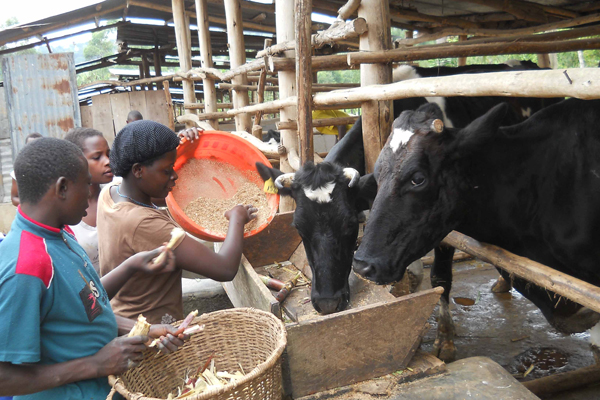NDA loses mandate over veterinary medicines, food and plants

Minister for ICT and National Guidance, Dr Chris Baryomunsi. PHOTO | PETER SSERUGO
What you need to know:
The paper presented by the Minister of Health seeks to amend the Act to enable the establishment of an independent authority called the Food, Animal, and Plant Health Authority. This authority will regulate food and veterinary medicines
The cabinet on Monday, May 8, okayed the proposed amendment to the National Drug Policy and Authority Act, paving the way for the establishment of an alternative authority that regulates food, plant health, and animal drugs.
The paper presented by the Minister of Health seeks to amend the Act to enable the establishment of an independent authority called the Food, Animal, and Plant Health Authority. This authority will regulate food and veterinary medicines.
These will include veterinary vaccines, veterinary devices, veterinary cosmetics, agrochemicals, and all other therapeutic products for plant and animal health.
The authority will be established under the Ministry of Agriculture, Animal Husbandry, and Fisheries.
The (National Drug Authority) NDA will only regulate human medicines, vaccines, medical devices, in-vitro diagnostics, public health products, and nutritional supplements, and a new body will be established to regulate plant and animal health.
Speaking to journalists at the Media Centre on Tuesday, Dr Chris Baryomunsi, the Minister of ICT and National Guidance said that this has been done to enable the NDA to put more emphasis on human drugs regulation.
“We looked at the issue of how do we make the NDA effective in terms of strict regulations of chemicals and the observation was the work seems to be too heavy and maybe the veterinary drugs and pharmaceutical supplies to do with veterinary services and plant health have not adequately been given due attention and due to the importance of animal health we took that decision to make it an exception and create this new agency,” he said.
The April 2018 NDA performance report by the Committee on Commissions, Statutory Authorities and State Enterprises (Cosase) revealed that NDA was overwhelmed by its workload, given the inadequate human resources it has and funding gaps.
NDA was established in 1993 by the National Drug Policy and Authority Statute which in 2000 became the National Drug Policy and Authority (NDP/A) Act, Cap. 206.
This was done to ensure the availability, at all times, of essential, efficacious, and cost-effective drugs for the entire population of Uganda as a means of providing satisfactory healthcare and safeguarding the appropriate use of drugs.
The NDA is supposed to protect and promote human and animal health through drug and healthcare product regulation.
It deals with the development and regulation of pharmacies and drugs. It also controls the importation, exportation, and sale of pharmaceuticals, control of drug quality, and promotion and control of local production of drugs.
NDA also encourages research and development of herbal medicines, establishes and revises professional guidelines and disseminates information to health professionals, provides advice and guidance to the minister and bodies concerned with drugs on the implementation of the National Drug Policy, and performs any other functions that is connected with the above or that may be accorded to it by law.
“UNBS will oversee all other products except those regulated by the NDA and the proposed Food, Animal, and Plant Health Agency. It will also regulate any other specialized agency established by law. UNBS remains a custodian of standards as per the law,” Dr Baryomunsi said.
The government he said, is aiming at strengthening drug and vaccine regulation across food, plants, and humans.




